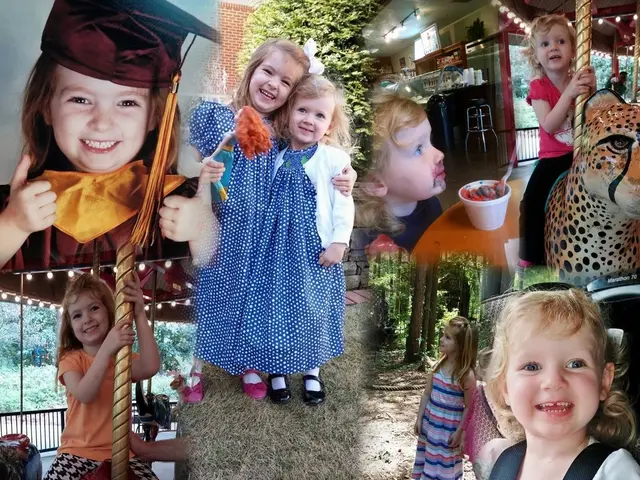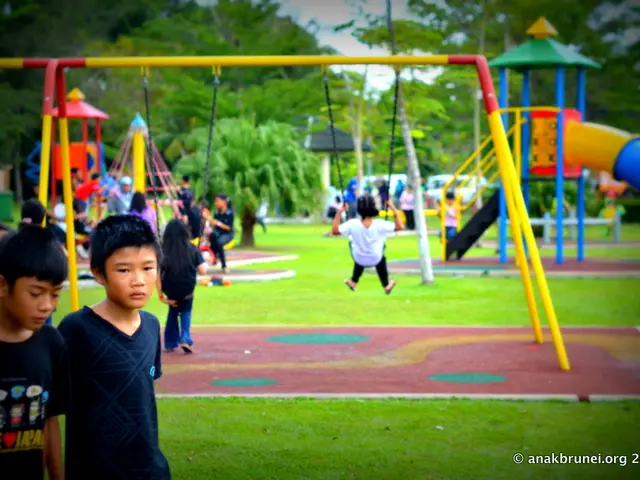The Impact and Power of Storytelling: A Journey Through Cultures
Narrative Artistry Across Civilizations: Exploring the Significance of Tales in Different Societies
Storytelling - an ancient human tradition long before the emergence of written language - is a fundamental aspect of human culture and society. Across the globe, each culture has its unique storytelling techniques, and these narratives transcend entertainment, serving as tools for history preservation, wisdom impartation, and community bonding. Let's delve into the significance of storytelling across various cultures and its role in shaping the human tapestry.
Roots of Storytelling
Once upon a time, storytelling was the primary mode of knowledge transmission between generations. Stories shared in communal settings often contained the experiences and wisdom of a community, helping preserve the collective memory of cultures.
Indigenous Storytelling
In many indigenous cultures, such as Native Americans and Aboriginal Australians, storytelling is deeply rooted in their way of life. These stories often involve tales of creation, heroes, and moral lessons, with elements of nature intertwined. They serve dual purposes, educating the young and preserving the culture's connection to the land and the past.
African Storytelling
African storytelling is rich with oral traditions. The Griots of West Africa, renowned for their role as storytellers, historians, and musicians, share stories that are not just for entertainment but to preserve the history and genealogies of their people. Accompanied by music, these stories offer a captivating and immersive experience.
Eastern Storytelling
In Eastern cultures, storytelling holds a long-standing tradition, particularly in countries like China, Japan, and India. China's storytelling history spans centuries, ranging from epic narratives to philosophical tales. Japanese folklore places emphasis on spirits and nature, offering a unique perspective on the human condition. Indian epics like the Mahabharata and Ramayana serve as integral parts of the cultural and religious identity of their people.
Mythology's Role
Mythology is a critical component of many cultures' storytelling, featuring gods, heroes, and mythical creatures. Greek mythology, shaping much of Western literature and art, offers explanations for natural phenomena and societal norms, as well as moral lessons.
Storytelling in Modern Context
In current times, storytelling continues to thrive in various forms, with books, films, and digital media becoming the new vehicles for storytelling. This revolution in storytelling has broadened the reach and the kind of audience engagement.
Digital Storytelling
Digital technology has transformed storytelling, offering interactive experiences and combining traditional narrative techniques with digital platforms. This has led to a more diverse exchange of cultural experiences and stories across the global stage.
The Educational Value of Storytelling
Beyond being an art form, storytelling serves as a powerful educational tool. Stories instill language skills, critical thinking, and moral reasoning in children. In many cultures, stories are used to teach morals, life lessons, and societal values.
The Social Impact of Storytelling
At its heart, storytelling fosters connection and understanding. By sharing stories, people can build empathy, bridge cultural divides, and promote cultural diversity and inclusivity.
Storytelling as a Cultural Bridge
Storytelling transcends geographical and cultural boundaries, creating a shared human experience. People from different cultures sharing their stories fosters understanding, respect, and a sense of global community.
Universal Themes in Stories
Despite the diversity of cultures, certain themes in storytelling are universal, such as love, heroism, adventure, and overcoming adversity. These common themes resonate with people of all walks of life, connecting us in our shared humanity.
Evolution of Storytelling in a Globalized World
As the world grows more interconnected, the evolution of storytelling is inevitable. Blending different cultural stories results in new narratives reflecting our interconnected world's dynamic nature.
Technology's Impact on Storytelling
Advancements in technology have drastically changed the way stories are told and shared, enabling storytellers to reach wider audiences than ever before. Social media, blogs, and podcasts provide new arenas for storytelling, allowing people to share their personal stories and experiences.
The Healing Power of Storytelling
Storytelling holds therapeutic properties, enabling individuals to process emotions and experiences. In many cultures, storytelling is used in healing rituals and as a form of therapy. Sharing stories can bring solace, understanding, and a feeling of community.
Stories and Conflict Resolution
Storytelling plays a crucial role in conflict resolution and peacebuilding efforts by fostering empathy and understanding. By sharing stories from different sides of a conflict, it opens pathways for reconciliation and healing.
Storytelling in Education
In education, storytelling is an indispensable tool, making learning an interactive and engaging experience. Stories simplify complex ideas, promote language development, and foster cultural awareness and sensitivity.
The Future of Storytelling
In the future, the art of storytelling will continue to evolve, with virtual and augmented reality technologies promising more immersive and interactive experiences. Simultaneously, it is essential to preserve traditional forms of storytelling to maintain the richness and diversity of global storytelling traditions.
Enrichment Data:
Storytelling plays a significant role in preserving history, imparting wisdom, and fostering community bonds through several mechanisms:
Preserving History
- Oral tradition: stories help maintain knowledge, art, and ideas across generations.
- Intergenerational dialogue: storytelling fosters a sense of continuity across generations, reinforcing community bonds and maintaining cultural heritage.
- Folklore and mythology: these stories store historical narratives and moral lessons essential for community cohesion and ethical behavior.
Imparting Wisdom
- Moral lessons: stories often convey moral and ethical lessons, guiding individuals in their personal and social lives.
- Reinterpretation: modern retellings of traditional stories allow them to remain relevant in a changing world, offering new insights and perspectives.
- Community values: stories reflect the values and beliefs of a community, ensuring the transmission of shared understanding and ethical standards.
Forging a Sense of Community
- Shared identity: stories help create a shared sense of identity and belonging within a community.
- Community bonds: the act of sharing stories strengthens community bonds, promoting social harmony, local connections, and civic pride.
- Cultural continuity: storytelling maintains cultural continuity, ensuring that cultural traditions and practices are preserved over time, reinforcing community identity and supporting social cohesion.
In essence, storytelling serves as a powerful tool for preserving cultural heritage, imparting wisdom, and fostering community bonds. By bridging generations, promoting cultural continuity, and reinforcing shared values, storytelling strengthens the fabric of communities around the world.
- In indigenous cultures like Native Americans and Aboriginal Australians, storytelling plays a vital role in preserving history and educating the young about their cultural heritage, while also connecting them to the land and their past.
- Through griots in West Africa, storytelling serves to preserve history and genealogies, presenting a captivating and immersive cultural experience that resonates with people across the African continent.
- Eastern cultures, such as China, Japan, and India, have long-standing storytelling traditions, with narratives like ancient Chinese epics and Indian epics like Mahabharata and Ramayana shaping their cultural and religious identities.
- Storytelling in modern contexts continues to evolve, with digital media playing a significant role in broadening the reach of stories, fostering cultural diversity, and promoting understanding across geographical and cultural boundaries.
- In education and self-development contexts, storytelling provides an effective means of imparting wisdom, teaching moral lessons, and inspiring personal growth, career development, and learning.
- As the world becomes increasingly interconnected, the evolution of storytelling will likely lead to a blend of various cultural narratives, reflecting the dynamic and interconnected nature of our global community, while also preserving traditional forms of storytelling to maintain cultural diversity and richness.








